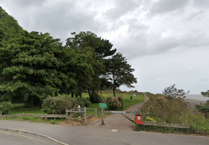PLANS are being worked up by the National Trust for the release of beavers into the wilds of Exmoor for the first time in 400 years.
It follows the 2020 re-introduction of the animals to the Holnicote estate, between Minehead and Porlock, where they have been breeding in fenced enclosures
A spokesperson said: “They have created wildlife-rich wetland habitats which help to counter the effects of flooding and drought and have proved a great attraction for the local community and visitors.”
The trust has been holding drop-in events in the area for people to learn more about its wild release plans, the next event being in Wootton Courtenay Village Hall on April 29.

It is working with Natural England to try to obtain licenses to release beavers into the catchment areas of the Rivers Aller and Horner.
The spokesperson said: “Natural England have recently announced they are accepting applications for licenced catchment releases.
“The team at Holnicote are currently working with stakeholders to develop an application to release beaver into the Aller and Horner catchments.
“This application will include a resourced management plan developed in partnership with relevant stakeholders.”

The trust refused to answer questions from the Free Press, but senior project manager Ben Eardley gave an interview to the BBC in which he said the Holnicote trial reintroduction had been mainly good.
Mr Eardley said the trust was working on its licence application with local farmers.
However, the National Farmers Union said it did not want to see further beaver releases until the Government had produced a long-term plan.
NFU deputy president David Exwood said: “With existing legal and illegal populations of beavers expanding across England, the Government must put in place a longer-term vision and management plan for beavers before any further wild releases are considered.”
The plans for beavers on Exmoor come after the trust last month carried out the country’s first licensed release of two pairs of Eurasian beavers to live in the wild in Purbeck, Dorset.

A spokesperson said: “For the first time since the 16th century, these extraordinary creatures will be able to legally roam freely across an area peppered with lakes and water courses, unrestricted by fenced enclosures.
“Hunted to extinction on mainland Britain for their fur, meat, and scent glands, beavers are now set to play a crucial role in ecosystem restoration.
“Beavers are nature’s engineers, creating wetland habitats that support countless other species.
“Their instinctive dam-building helps tackle the impacts of climate change by creating wetlands that retain water during floods and droughts, benefiting both nature and people.
“These natural dams also filter water, improving its quality downstream.”
Beaver Trust head of restoration Dr Roisin Campbell-Palmer said: “In order to realise the societal benefits beavers can bring, their population needs far greater number across the country.

“We are generations behind the rest of Europe in bringing this species back.
“We do have high levels of public support for their return, so now we look forward to new sites coming forward under the agreed licensing process to facilitate population expansion.”



